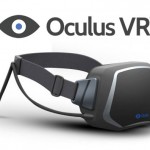Facebook Announces $2 Billion Deal with Oculus VR
 Social networking giant, Facebook has announced a $2 billion deal to acquire the virtual reality company Oculus VR. The company is best known for their development of the Oculus Rift headset, which was originally funded on Kickstarter and was targeted at innovating gaming experiences.
Social networking giant, Facebook has announced a $2 billion deal to acquire the virtual reality company Oculus VR. The company is best known for their development of the Oculus Rift headset, which was originally funded on Kickstarter and was targeted at innovating gaming experiences.
However, Facebook’s Chief Executive Officer Mark Zuckerberg said that he believed the virtual reality technology had wider implications. During a conference call with analysts, he stated: “Oculus has the potential to be the most social platform ever. Imagine sharing not just moments with your friends online, but entire experiences and adventures.”
Oculus VR founder, Palmer Lucky previously recognised the social potential of the Oculus Rift in an interview with PC Gamer. He said: “Think of Facebook. People interact on Facebook a lot and in real life a lot. But right now Facebook is largely a tool to organize meeting up with people in real life. And that’s because even though we talk to people online, it’s a very crippled experience to actually doing things and spending time with people in real life. It’s more convenient, but you lose a lot.”
“We’re in a similar situation with VR. Right now, VR is kind of a crippled version of reality where there are reasons to use it, but you wouldn’t use it for everything. When VR is going to be exciting is when it gets as good as real life at everything, and you start to say, well, why would I travel on a business meeting across the world just to go sit face-to-face with people, if we can just plug in Rifts and get all of the same nuance of communication we could have gotten otherwise.”
The news of the acquisition raised concerns among the gaming community, who saw the possibility for Oculus to not only become a gaming platform of its own, but one that could pioneer VR technology for other social gaming sites. The worry was that the deal could limit companies like Social Gaming Network and Full Tilt Poker who may not be able connect users from multiple social platforms or will be charged high rates to be able to use the technology on their own networks.
However, the deal will see the Oculus team work independently within Facebook and remain focused on creating other gaming experiences. There are also plans to create other experiences, opening up the possibilities of enjoying a court side seat at an NBA game, studying in a classroom of students from around the world or consulting face to face with specialist doctors for a fraction of the cost.
Despite this, the development community has been hit hard by the news. “I never would have backed them if I thought this was even a remote possibility. I’m literally sad because I feel like a promising future was really just a hopeless dream,” said programmer Chip Collier. “VR has just been set back another 20-30 years.”
George Buckingham, a developer with Die Gute Fabrik studio, mirrored these sentiments, saying: “I’m irritated. The FB acquisition of Oculus seems 80% likely to kill their momentum… It’s probably going to get locked down in annoying ways and stop being a cool, weird tech you can freely hack on. I hope someone else comes and makes basically the same thing. Though I guess, that’s Sony, now.”
However, others are taking a more optimistic perspective, feeling that Facebook can provide opportunities for Oculus Rift to move forward. Head of Games at IHS Technology, Piers Harding-Rolls concluded: “Reaction from the gaming industry will fall into two major camps. There will be independent developers that will feel alienated by this move and may shift their priorities to other platforms. Others will see the advantages of having a much bigger entity behind the platform with deeper pockets alongside a massive audience of potential consumers across Facebook.
“Judging by Zuckerberg’s comments, Facebook is keen to accelerate the development of Oculus’ gaming capabilities, but I sense this is more about proving the concept and driving early adoption for a much broader set of applications many years down the road.”







No Trackbacks.